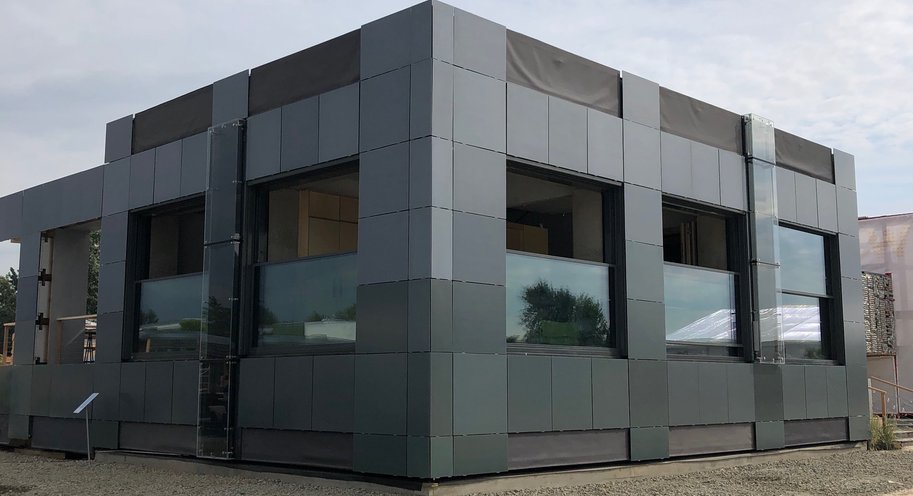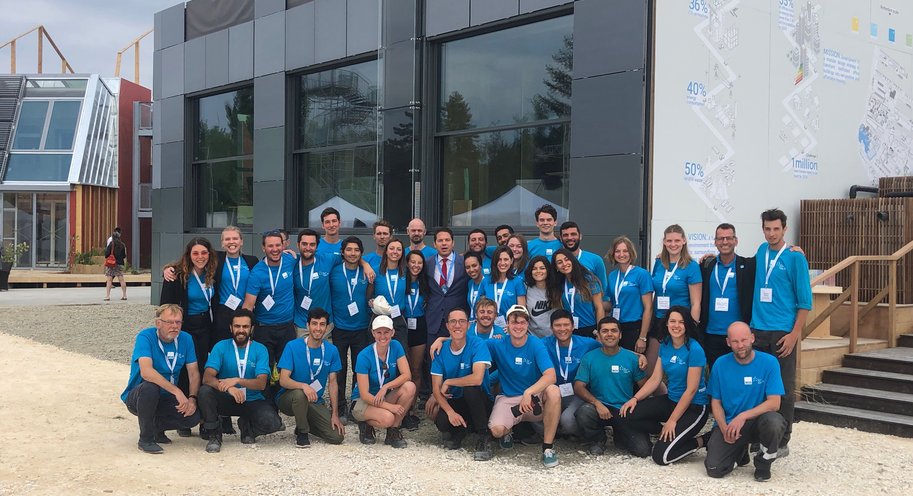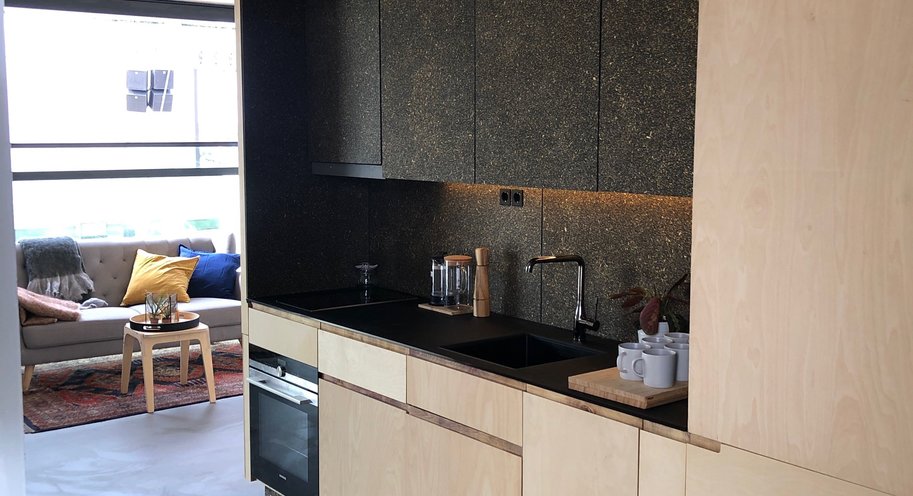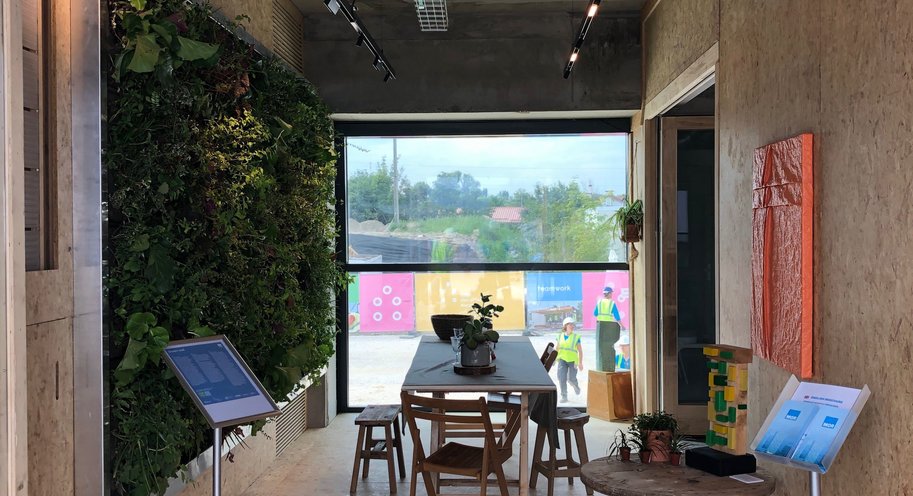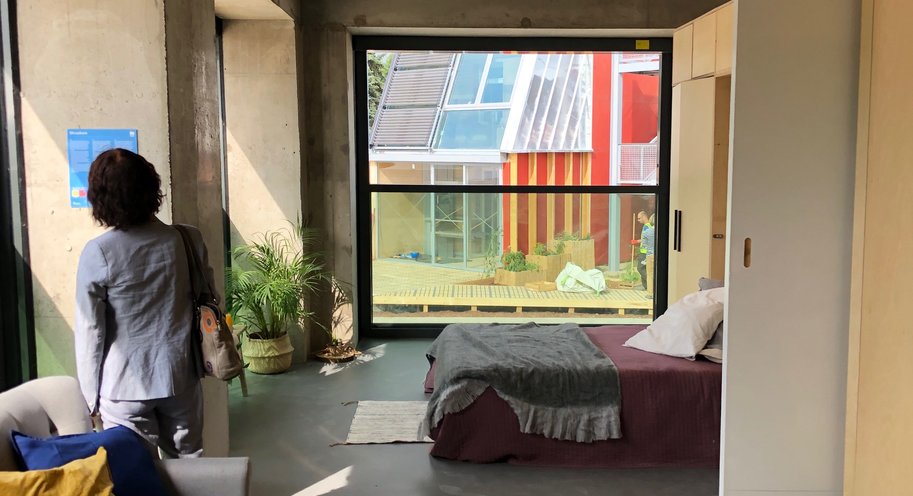TU Delft students narrowly miss out on title at the world championships for energy-efficient construction
On Sunday 28 July the TU Delft MOR (Modular Office Renovation) team finished second at the 2019 Solar Decathlon Europe. MOR was the only Dutch team at the world championships for building energy-efficient houses, which took place in Szentendre, Hungary. The TU Delft students with their self-built energy-efficient house were at the top of the overall ranking from the start of the competition, but were overtaken by the French team HABITER2030 on the thrilling final day.
Solar Decathlon
During Solar Decathlon Europe the houses designed by the participating teams were assessed on 10 categories. For each category there was a prize up for grabs, and all the points were added up to produce an overall ranking. Each category is worth 100 points and the MOR team finished second with a total of 851.8 points, comprising three first prizes, four second prizes and one third prize. The French team came first with 853.5 points. Teams from all over the world took part in the competition, including Spain, Thailand, Hungary and Algeria.
Happy
“We’re really happy with second place! The past two years have been challenging, but most of all educational and a lot of fun. We’re proud of our result. Never before in the history of the Solar Decathlon has a team achieved eight podium places for the sub-categories,” says Nienke Scheenaart, MOR team member and architecture student. “It was great to be on the podium with the team for the eight category prizes and then the second place in the overall ranking. We enjoyed the competition, and together we have shown what is possible in the field of sustainable building.”
From inefficient offices to A+++ homes
For the competition, the students built the prototype themselves in just fifteen days. The prototype is a full-scale reproduction of an inefficient office that has been converted into a 50 m2 apartment with a 25 m2 courtyard garden. “There are two major challenges facing the built environment in the Netherlands,” explains Scheenaart. “For example, approximately 55% of all offices in the Netherlands have an energy label lower than C, which means that they perform poorly. In addition, one million homes need to be built by 2030. Our prototype could help with these challenges,” says Scheenaart. “Hopefully with this design we can bring about the necessary change in the world of construction.”
MOR - Modular Office Renovation prototype
The Netherlands leading the way
The prototype was designed and built in the Netherlands by a team of 46 students. It was then disassembled and rebuilt during the competition in Hungary. Scheenaart: “We wouldn’t have been able to participate in the Solar Decathlon without the support of our partners. The MOR team is very grateful to its main sponsors: De Groot en Visser, the Ministry of the Interior, the Ministry of Economic Affairs and Climate, TBI | JP. Van Eesteren, Croonwolter&Dros and finally ABN AMRO, who will be putting its name on the project after the competition.” Vincent Groet, ABN AMRO: “We are incredibly proud of the MOR team. They put up an exceptional performance in a very competitive field. And it is yet more confirmation that the Netherlands is one of the leaders in the field of sustainable building and renovation.”
For more information:
https://www.facebook.com/MORtudelft/
Want to know more about D:DREAM? Follow us on facebook and instagram:

